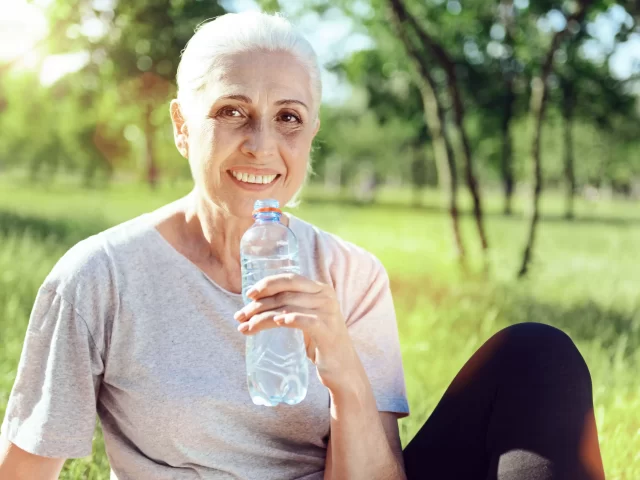Hot Outside? What to Do If You Have Heart Disease

The lazy, hazy days of summer are here. That makes it a great time to kick back and relax, which is good for your mental health. But did you know that it’s also good for your heart?
One risk factor for heart-related issues is chronic stress. Many people are faced with more stress on a regular basis than is healthy for their hearts (or for anything else in their bodies for that matter). Finding ways to reduce stress is one way to be good to your heart in more ways than one. Cardiologist Renee Bullock-Palmer, MD, suggests taking breaks from the news, social media, and unplugging and unwinding can help relieve stress.
While you’re taking advantage of ways to relax and de-stress this summer, keep the following tips in mind if you have heart disease. Hot weather puts an extra strain on your heart and your body may not be able to respond to the heat or humidity as easily as it used to. You don’t need to stay indoors or skip the summer fun, but you should take a few extra precautions to protect your heart.
- Drink up. You’re more prone to dehydration when it’s hot outside and becoming dehydrated puts a strain on your heart. Drinking plenty of fluids also helps regulate your body temperature. The best way to stay hydrated is to drink water. If you need some flavor, consider adding slices of fresh fruit or some herbs. Limit caffeine and alcohol as much as possible—they can actually make you more dehydrated.
- Ask about your medications. Some common heart medications may make you more vulnerable to the heat and sun. Ask your doctor if you should take any special precautions due to the medications you take.
- Stay cool. If you need to cool down in a pinch, a cold compress applied to pulse points—like your wrists, armpits, temples or neck—can help you cool down. When the heat is unbearable, get into an air conditioned room or car if possible. Spraying water on your skin may also help.
- Change your workout. Consider moving your workout indoors to an air conditioned location on days when it’s very hot or humid. If you still want to work out outdoors, do it early in the morning or in the evening when it’s cooler, but stop if you feel overheated.
- Watch for warning signs. If you feel dizzy or weak or have symptoms like heavy sweating, headache, nausea, vomiting, fatigue or muscle cramps, get out of the heat and cool down immediately. These may be signs of heat exhaustion. Move to a cool place, loosen clothing, sip cool water and place cool compresses on your body. Signs of a more serious condition, called heat stroke, include no sweating, rapid heartbeat, severe headache, hot/red skin, confusion and possible loss of consciousness This is a life-threatening medical emergency so 911 should be called.
Copyright 2022-2023 © Baldwin
Publishing, Inc..
Health eCooks™ is a designated
trademark of Baldwin Publishing, Inc. Any duplication or distribution of the information contained herein without
the express approval of Baldwin Publishing, Inc. is strictly prohibited.